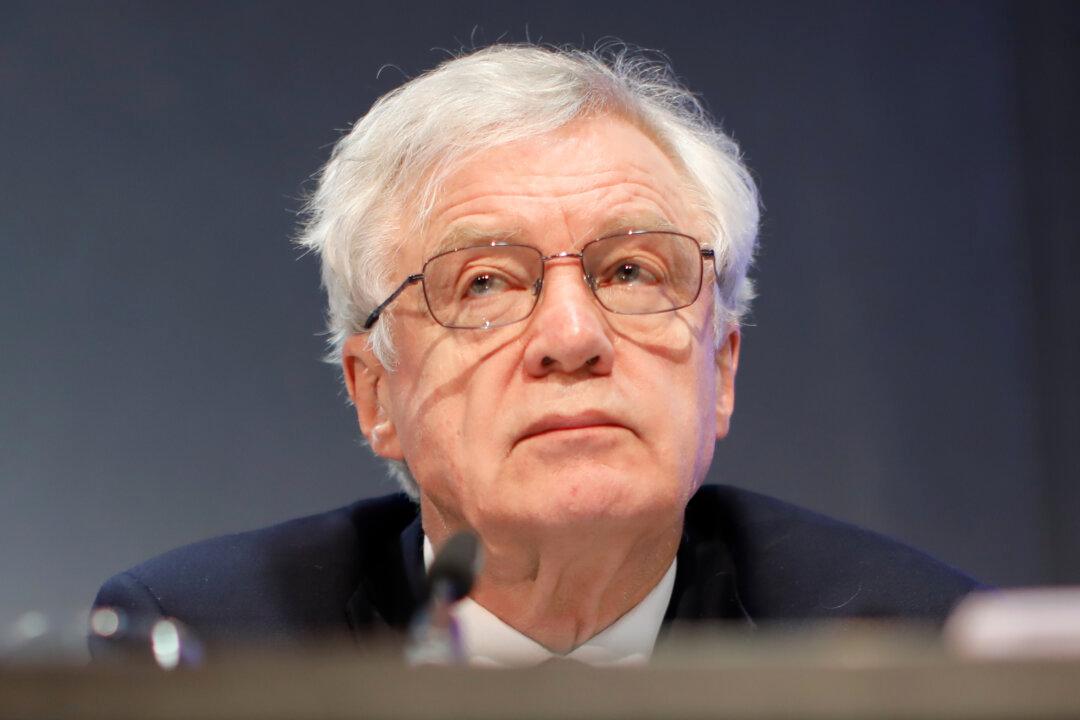The UK’s former Secretary of State told British lawmakers on Tuesday that free speech is under severe threat in the country’s universities from the cancel culture movement.
“Today there’s a corrosive trend in our universities that aims to prevent anybody hearing ideas that groups disagree with or would be offended by,” said Conservative MP David Davis while introducing his Freedom of Speech (Universities) private members bill to the House of Commons.





